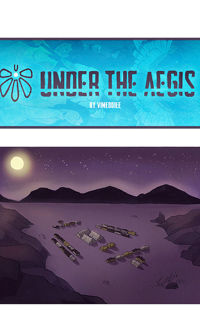Martial Peak Reviews
Raquel Riley's The Forbidden Summer is a poignant exploration of love, memory, and the courage to defy societal norms. Set against the serene backdrop of Pathfinders Lake, the novel delves into the complexities of relationships that transcend conventional boundaries, offering readers a narrative that is both tender and thought-provoking.
The story is narrated by Evander, affectionately known as Van, whose summers are defined by the cherished moments spent at a lake cabin with Waylon, his grandfather by love rather than blood. This setting is not just a physical space but a repository of memories and emotions, a place where Van and Waylon's bond deepens over time. Riley's depiction of the lake cabin is vivid and evocative, capturing the tranquility and nostalgia that such a place embodies. It serves as a perfect backdrop for the unfolding of a love story that challenges societal expectations.
One of the novel's most compelling aspects is its exploration of forbidden love. Van's growing feelings for Waylon are portrayed with sensitivity and nuance, capturing the internal conflict and tension that arise when love defies societal norms. Riley skillfully navigates the complexities of their relationship, allowing readers to empathize with their struggle. The discovery of Harold and Elliot's letters adds a historical dimension to the narrative, drawing parallels between past and present. These letters serve as a catalyst for Van and Waylon, prompting them to confront their feelings and question the constraints imposed by society.
The character development in The Forbidden Summer is noteworthy. Van is a well-rounded protagonist whose internal journey is as significant as the external events of the story. His introspection and emotional growth are portrayed with authenticity, making him a relatable and sympathetic character. Waylon, too, is a complex figure, embodying the wisdom and warmth of a grandfather while grappling with his own emotions. The dynamic between Van and Waylon is beautifully rendered, capturing the nuances of a relationship that is both familial and romantic.
Riley's writing is both lyrical and evocative, capturing the essence of summer and the emotions that accompany it. Her prose is imbued with a sense of longing and nostalgia, reflecting the characters' inner turmoil and the beauty of their surroundings. The use of the lake as a metaphor for hidden depths and unspoken emotions is particularly effective, adding layers of meaning to the narrative.
The theme of hidden love is central to the novel, and Riley handles it with grace and sensitivity. The parallels between Van and Waylon's story and that of Harold and Elliot highlight the enduring nature of love and the courage required to embrace it. The novel raises important questions about the nature of love and the societal norms that seek to define it. It challenges readers to consider the ways in which love can transcend boundaries and defy expectations.
In comparison to other works that explore similar themes, such as André Aciman's Call Me by Your Name or E.M. Forster's Maurice, The Forbidden Summer stands out for its unique setting and the intergenerational aspect of its love story. While Aciman and Forster focus on romantic relationships between peers, Riley's novel explores the complexities of a bond that is both familial and romantic. This adds a layer of complexity to the narrative, challenging readers to reconsider their assumptions about love and relationships.
Overall, The Forbidden Summer is a beautifully crafted novel that offers a fresh perspective on love and memory. Riley's exploration of forbidden love is both poignant and thought-provoking, inviting readers to reflect on the nature of love and the courage required to embrace it. The novel's evocative setting and well-developed characters make it a compelling read, one that lingers in the mind long after the final page is turned.
For readers seeking a story that challenges societal norms and celebrates the enduring power of love, The Forbidden Summer is a must-read. Riley's deft storytelling and lyrical prose make this novel a standout in the genre, offering a narrative that is both timeless and timely.
























Reviews 0
Post a Reviews: